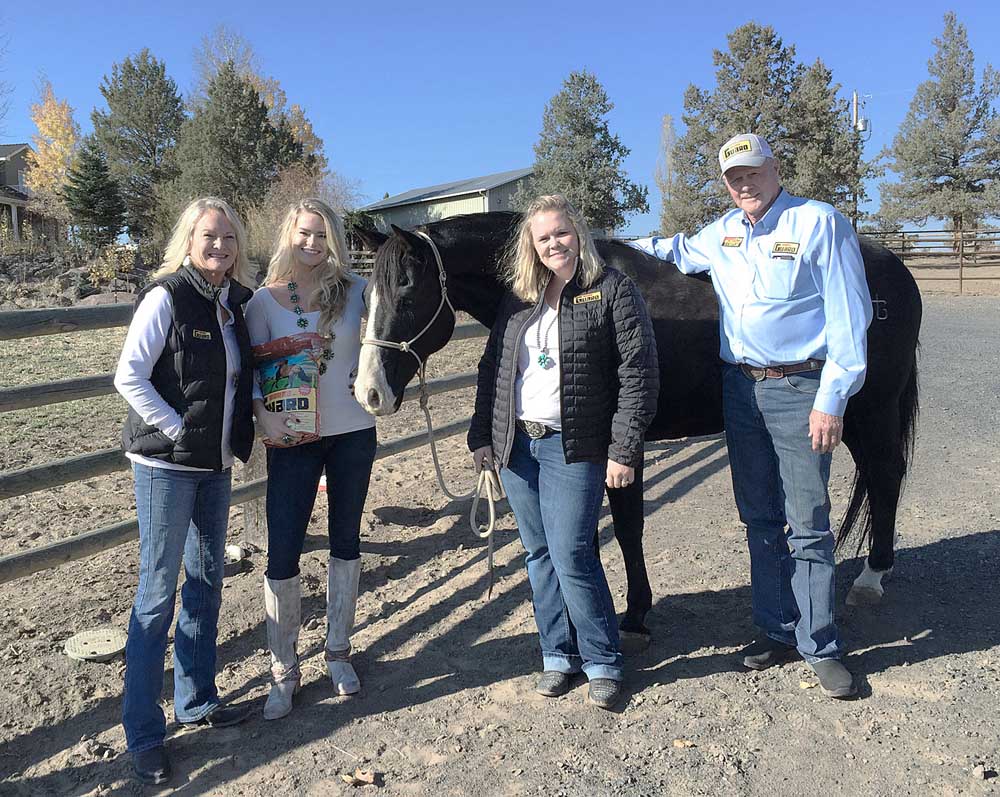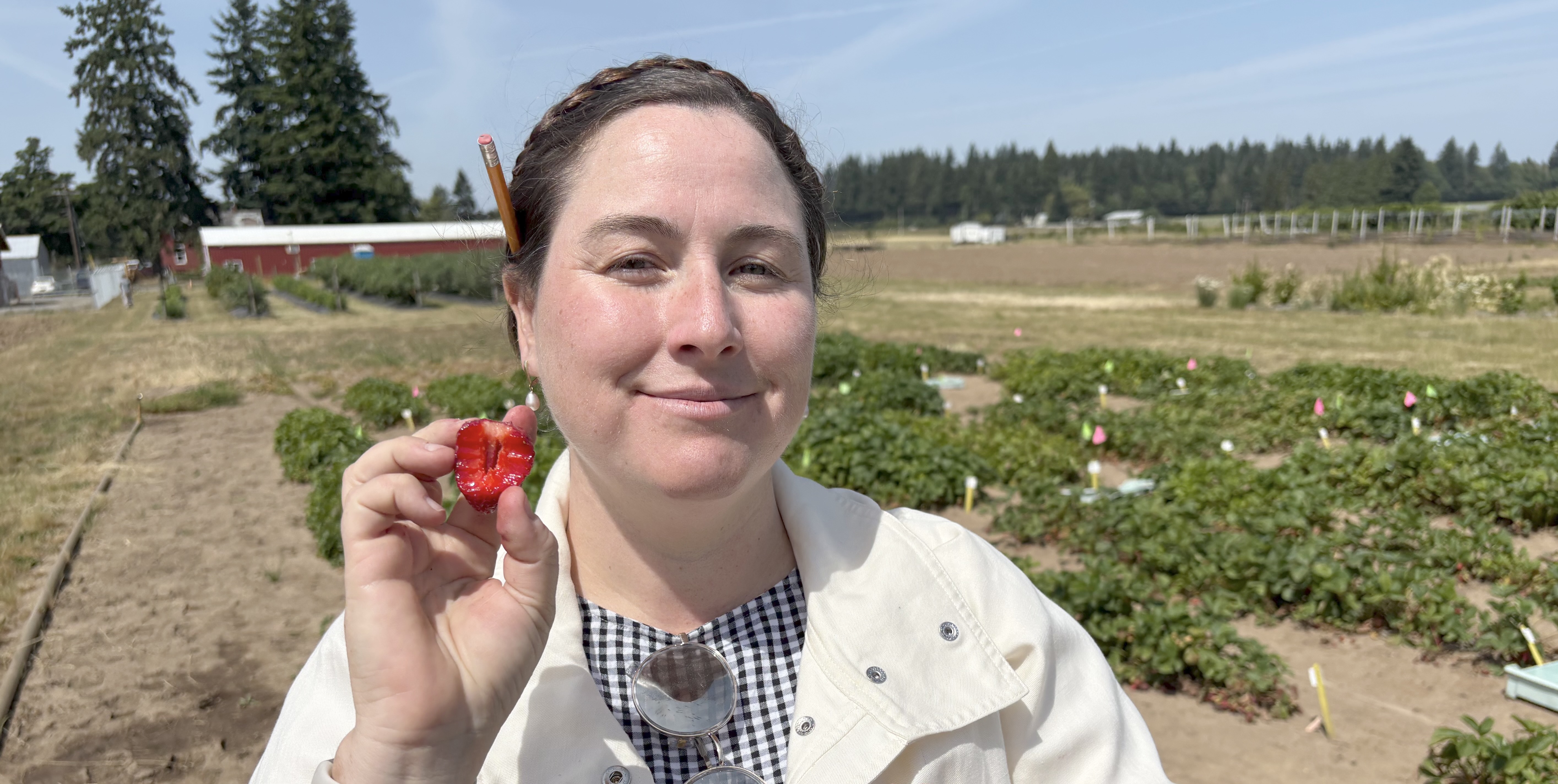Horse supplements a family business
Published 3:31 am Thursday, November 30, 2017

- From left, Lori Johnson, Ty Johnson, Kelsey Nonella and Del Johnson run the Horse Guard Co., which produces nutritional supplements for horses. Next year the company celebrates its 40th anniversary.
REDMOND, Ore. — Growing up, Del Johnson thought he would make his living as a rodeo cowboy. When he realized that profession was “too skinny” financially, he decided to pursue a master’s degree in animal nutrition instead.
At the time, Oregon State University was researching selenium deficiency in cattle — giving Johnson an idea for a business venture.
“I saw an opportunity to make a product for horses that had selenium in it. I made that and with zero business knowledge, I packaged and labeled gallon jugs of liquid supplement,” Johnson said.
Selenium is a nutrient that is incorporated in making proteins called antioxidant enzymes, which help prevent cellular damage in animals. Although essential to good health, it is required only in small amounts.
While plant foods are the major source of selenium, the level is determined by the geography of the soil, and many regions in the world are selenium deficient, including much of Oregon and California.
“These places are farmed for years and important nutrients aren’t being brought back into the soil,” Johnson said. “All the trace minerals are taken out of the soil and the selenium is depleted more and more.”
In 1978 Johnson licensed Horse Guard, and began to date Lori, who is now his wife. Her father was Johnson’s first customer. The two married in 1984, and Lori Johnson became the chief financial officer.
Having worked for Purina in the past, she already had a background in business. At that point they were selling enough for them to support themselves.
“Back when the company started, research indicated a selenium deficiency in the Northwest,” Lori Johnson said. “Del said, ‘Why isn’t there a feed supplement that you don’t have to buy through a vet with a prescription?’”
One of the challenges the business had to overcome was misconceptions about selenium.
Then studies revealed the nutrient’s importance to health.
“Selenium was known to be toxic before it was known to be essential,” said Kelsey Nonella, who has a Ph.D. in equine nutrition and is Del and Lori’s daughter.
Nonella and her sister, Ty Johnson, grew up with the business and returned to it after college. Ty Johnson now works in sales and marketing, while Nonella works as a nutritionist and educational blogger. The sisters also host educational seminars around the country.
“I always knew I’d come back to Horse Guard,” Nonella said. “I shared that passion, that’s what I went to school for. I always loved Central Oregon, and I saw the joys and opportunities that Horse Guard allowed us as a family growing up. I wanted to have that for my family.”
Lori Johnson said they were thrilled their daughters came back to work with them, and explained that the business works because everyone “wears a different hat.”
“To have our girls come to work with us, we get to see them grow every day,” she said. “To watch your kids and work with your husband in the same harness working towards a common goal” is the most rewarding aspect.
Horse Guard has enjoyed its share of firsts in the animal supplement industry.
In 1978 the company was the first to provide selenium in a supplement, in 1984 it was the first to develop a weight gain product, in 1991 it was the first do add biotin — also known as vitamin H, in 2003 it was the first to include 100 percent organic selenium, and in 2005 it was the first to combine hoof health, joint health and probiotics in one product.
“It’s exciting for us,” Del Johnson said. “For us, that was a big deal to include selenium. You can’t buy a supplement now without it. We did it first because of legitimate nutritional needs. It’s just so important to horse health.”
Horse Guard’s latest product is an organic flax seed treatment called Flix, which is high in omega-3 fatty acids.
“We’re not only horse owners, we’re competitors,” Nonella said. “We don’t just do it because they’re our companions and we love them, but they need to perform at the highest level possible. We have confidence that’s the product we have.”






